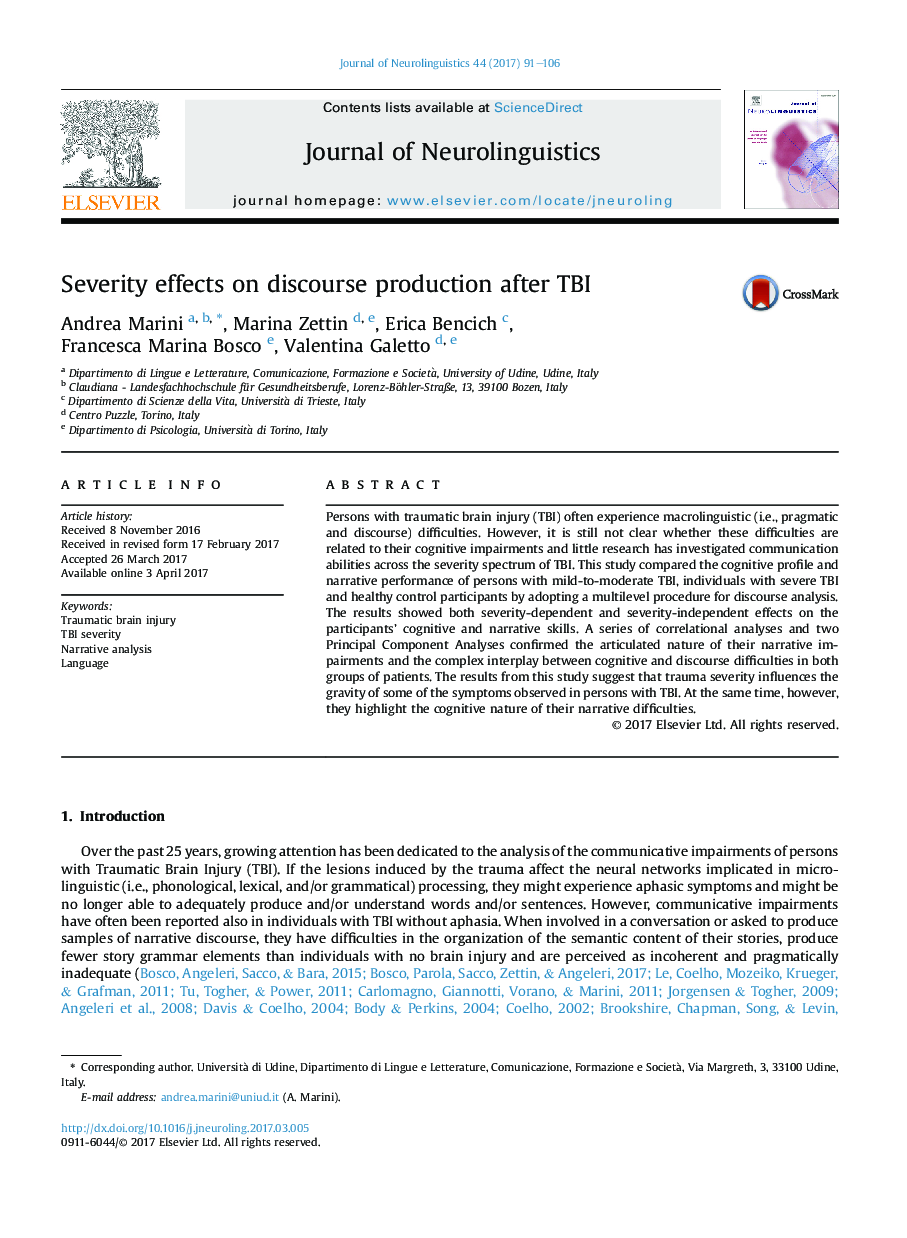| Article ID | Journal | Published Year | Pages | File Type |
|---|---|---|---|---|
| 5039250 | Journal of Neurolinguistics | 2017 | 16 Pages |
â¢We analyzed narrative discourse in severe and mild-to-moderate TBI.â¢They couldn't organize the relevant information at the macrolinguistic level.â¢Both severity-dependent and severity-independent effects were found.â¢Scores on tests assessing executive functions correlated with narrative measures.
Persons with traumatic brain injury (TBI) often experience macrolinguistic (i.e., pragmatic and discourse) difficulties. However, it is still not clear whether these difficulties are related to their cognitive impairments and little research has investigated communication abilities across the severity spectrum of TBI. This study compared the cognitive profile and narrative performance of persons with mild-to-moderate TBI, individuals with severe TBI and healthy control participants by adopting a multilevel procedure for discourse analysis. The results showed both severity-dependent and severity-independent effects on the participants' cognitive and narrative skills. A series of correlational analyses and two Principal Component Analyses confirmed the articulated nature of their narrative impairments and the complex interplay between cognitive and discourse difficulties in both groups of patients. The results from this study suggest that trauma severity influences the gravity of some of the symptoms observed in persons with TBI. At the same time, however, they highlight the cognitive nature of their narrative difficulties.
